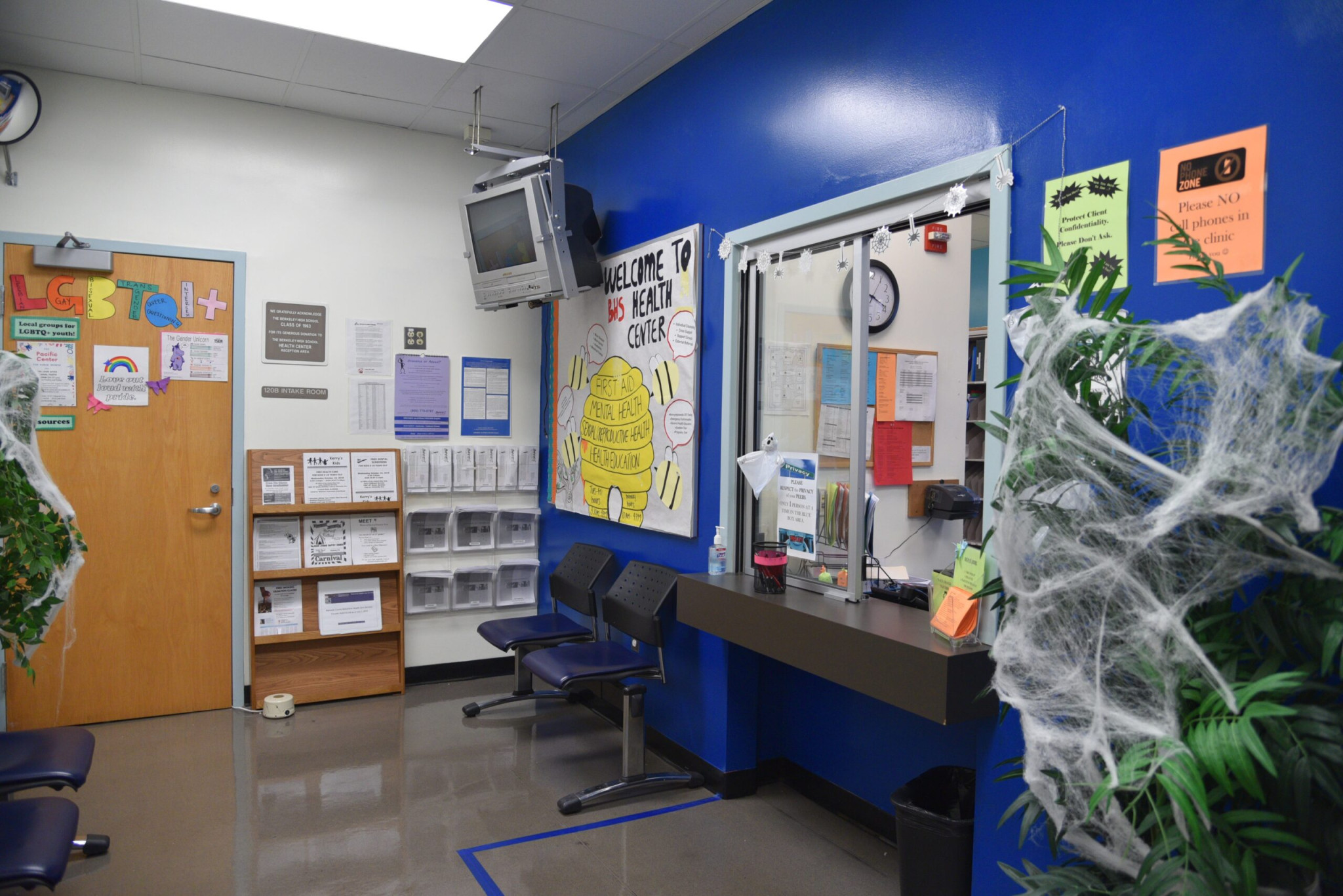Berkeley High School (BHS) can be an overwhelming place for many people, given the size and activity happening on a day-to-day basis. Oftentimes, students need support, whether that means having someone to talk to about grades, depression, anxiety, or events happening at home. However, it can be hard to know where to find that support at a school as big as ours. We hear a lot about how BHS has so many resources available to its students, but more often than not, those resources aren’t really explained to students at all. In addition, these resources are scarcer than one may think due to the lack of funding and attention around students’ mental health. However, here’s a basic guide to the support systems that do exist here at BHS.
One great resource at BHS is the Health Center. This one is probably the most talked about support system at the school, but there’s still a lot of confusion around how, when, and why you can use it. The health center is an amazing resource for mental health counseling, and, as of this year, is home to one drop-in counselor, Sally Walstrom. It’s open Monday through Friday all day except fourth period and Tuesday mornings. During business hours, students can come in and ask to meet with a drop-in counselor. In addition, there are several long-term counselors available for scheduled weekly appointments, and students can choose the best fit for them. However, each session includes some paperwork and discussion of the laws around the counseling. In addition, although health center workers do not technically work for the school, it is important to note that they are mandated reporters.
Overall, the Health Center is a great resource if students have any type of mental health needs or want to talk about anything they’re struggling with in their lives, whether it’s something as small as a fight with a friend or something as challenging as depression or drug addiction.
Another useful and under-utilized resource at BHS is students’ personal guidance counselors. While Jasdeep Malhi and Jessica Levin, the current two intervention counselors, are often the go-to counselors for students who need help, they already have massive case loads of students. “When kids come through our doors saying ‘Ms. Malhi, I need to talk to you about something important,’ obviously I’m not going to turn them down because I care about them, but what we tell kids is that if you’re going through something, your first step should be your guidance counselor,” said Malhi.
In the past semester, the intervention counselors helped around 400 students not on their case load, and that only includes the ones they could count.
However, guidance counselors are generally also available, and can make referrals to the Health Center if a student’s needs are beyond their skill set. To find your counselor, just go to the counseling office and ask if they’re available to meet with them.
While it might not be easy to talk to an academic counselor at first, it’s important to give them a chance and try to build a relationship with them. This will allow students to be able to access the counselors as a resource when they need help and the Health Center is closed. This may mean coming to them when you are in a healthy state of mind just to ask for help changing a schedule, so that when you need their help for other things, there is an established relationship and more comfort to have deeper conversations.
Unfortunately, these are the only two main resources offered for BHS specific to mental health apart from peer counseling. At such a large school where the demand is so great, the reality is that we need more support for our students, whether that’s more restorative justice and drop-in counselors, or even some kind of longterm sexual harm healing space for students.
According to many students, focusing on their education can prove difficult when they are not in a headspace to learn. It’s the school’s responsibility to do everything it can to ensure that students get support for their mental and emotional health.
Nevertheless, it is of paramount importance for students to be fully knowledgeable about the resources that are available and how to take advantage of them.





